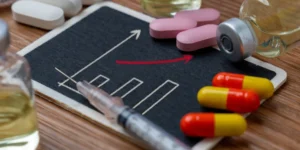How can individuals in addiction recovery cultivate self-love to counteract low self-esteem and promote lasting healing? Get help from qualified counsellors.Healing Begins When We Replace Self-Hate With Self-Compassion
Ask anyone deep in addiction what they feel about themselves, and you’ll rarely hear the word “love.” More often, you’ll hear disgust, shame, guilt, or a numb silence that says it all. Most addicts don’t just struggle with the substance, they struggle with the reflection staring back at them. It’s not the drug they can’t quit. It’s the voice in their head that says they aren’t worth quitting for.
When you live for years trapped inside that voice, you start believing the lie that you are broken beyond repair. The bottle, the needle, the pill, they stop being choices and become survival mechanisms. They help you outrun yourself. But recovery begins when you stop running. And that moment, when you face yourself sober, is terrifying.
It’s why recovery isn’t only about getting clean, it’s about getting honest. You can’t heal what you still hate. You can’t stay sober if you can’t stand who you are without the substance. The first miracle of recovery isn’t found in detox, it’s found in the slow, painful rediscovery of self-worth.
The Anatomy of Self-Loathing
Self-hate doesn’t appear out of nowhere. It’s often rooted in early rejection, emotional neglect, trauma, shame, or comparison that takes root in childhood. Many addicts describe growing up with an invisible weight: the belief that they were too much, or never enough.
That belief becomes the foundation for addiction. Drugs and alcohol become anesthetics, numbing the ache of inadequacy. The problem is, they also numb the ability to feel love, joy, or connection. Addiction rewires the brain to replace self-worth with chemical comfort, a hollow imitation of peace.
Over time, the addict’s relationship with themselves becomes one of warfare. Every promise broken, every relapse, every shame spiral confirms what they already “know”: they’re worthless. This cycle of self-hate keeps people trapped long after the physical dependency ends. Because even when the body is clean, the mind still whispers: you don’t deserve recovery.
The Spiritual Detox
Step 12 of the recovery program talks about spiritual awakening, carrying the message, and living by certain principles. For many, this step feels far away, almost impossible, how do you feel “spiritual” when you barely feel human?
But spirituality in recovery isn’t about religion. It’s about reconnection, to yourself, to others, and to something greater than your pain. It’s about accepting that you’re not the centre of the universe, and that help exists beyond the boundaries of your control.
Spiritual principles like honesty, open-mindedness, and willingness are the scaffolding that recovery hangs on. But the principle that underpins them all, the one that truly heals, is love. Love as honesty. Love as courage. Love as forgiveness.
Because recovery is not about punishment; it’s about transformation. And transformation begins the moment you stop asking, “What’s wrong with me?” and start asking, “What happened to me?”
The Longest Journey
There’s a saying in recovery circles, “The longest distance an addict travels is from the head to the heart.”
Addicts live in their heads. They analyse, justify, intellectualise, anything to avoid feeling. Feelings are dangerous; they hurt. But recovery demands feeling. It asks you to put down the armour of logic and walk into the battlefield of your own emotions unarmed.
That’s where the healing happens. When you finally stop trying to “think” your way out of pain and allow yourself to feel it, you begin to connect with something real. Pain becomes a teacher instead of a punishment. Sadness becomes human instead of shameful.
It’s messy. It’s uncomfortable. But it’s the bridge between surviving and living.
Self-Love Isn’t Selfish
Self-love has become a trendy slogan, often reduced to bubble baths and affirmations. But in recovery, self-love is war. It’s an act of rebellion against the lies addiction taught you. It starts with the smallest boundaries, learning to say no. No to chaos. No to toxic people. No to the old version of yourself who tolerated mistreatment. For addicts, saying no feels unnatural. People-pleasing was often the first addiction, approval being the original drug.
But saying no is how you start saying yes to yourself. It’s how you reclaim power.
True self-love isn’t about indulgence; it’s about alignment. It’s waking up and deciding, “I deserve better,” and then proving it with your actions. It’s choosing therapy over escape. It’s showing up for meetings when your shame tells you to stay home. It’s eating a proper meal, resting, and speaking kindly to yourself, even when you don’t believe it yet.
Changing the Inner Voice
The mirror is a dangerous place for someone who’s spent years hating their reflection. Recovery teaches you to face it again, not as punishment, but as practice. Look yourself in the eyes. Say something kind. Not a fake compliment, a truth. “I’m trying.” “I’m still here.” “I forgive you.”
It feels ridiculous at first. But this is how you rewire a brain conditioned by shame. Self-talk is powerful. If you speak to yourself like an enemy long enough, you become one. Changing that dialogue takes time and repetition. You wouldn’t talk to a child or a friend the way you talk to yourself. Recovery asks: why should you be any different?
Every time you speak with compassion instead of criticism, you teach your nervous system that you are safe in your own body. And when you feel safe inside yourself, the need to escape lessens.
Help For You
Facing your own drinking or drug use can feel overwhelming, but ignoring it usually makes things worse. Here you’ll find clear information on addiction, self-assessment, and what realistic treatment and recovery options look like.
Help A Loved One
If someone you care about is being pulled under by alcohol or drugs, it can be hard to know when to step in or what to say. This section explains warning signs, practical boundaries, and how to support them without enabling.
Frequent Questions
Most families ask the same tough questions about relapse, medical aids, work, and what recovery really involves. Our FAQ gives short, honest answers so you can make decisions with fewer unknowns.
Learning to Care Again
Addiction disconnects you from your body. You forget to eat, to sleep, to rest. You punish yourself through neglect. The journey back to health is, in many ways, the physical expression of self-love. Ask yourself before you eat, drink, or do anything: “Is this love or sabotage?” It’s not about perfection. It’s about awareness.
Go for a walk. Sleep. Feed your body something that nourishes it. Stretch. Breathe. These acts sound small, but for someone recovering from addiction, they’re monumental. They send the message that your body is worth caring for. The body keeps the score, it remembers trauma and neglect. But it can also remember love. Every healthy choice rewrites that memory, one cell at a time.
Loving in Action
Self-love doesn’t end with you. In fact, it only truly works when you share it. That’s the genius of Step 12, carrying the message. You can’t keep what you don’t give away. Helping others creates accountability, connection, and purpose. It turns recovery into community.
Love in action looks ordinary, listening without judging, showing up for someone, volunteering, making amends. But it’s sacred work. Each act of service heals the selfishness that addiction thrives on. When you reach out to help someone else, you’re really helping yourself remember who you are, not the addict, but the human underneath.
Real Recovery Looks Ordinary
Recovery isn’t glamorous. It looks like washing the dishes, making the bed, paying the bills, calling your sponsor, and choosing not to pick up, every single day. Those mundane routines create order in the chaos. They remind you that life doesn’t need to be extreme to be meaningful.
Your surroundings mirror your inner state. A made bed says, “I care.” A clean kitchen says, “I’m trying.” These small acts rebuild dignity, one habit at a time. Perfection isn’t the goal, consistency is. Recovery is less about big breakthroughs and more about daily maintenance. Ordinary is the new extraordinary.
Finding Joy Again
Many addicts forget how to play. Joy feels foreign, undeserved, or unsafe. But joy is the final stage of healing, the proof that you’ve returned to life. Dance. Laugh. Create. Walk barefoot on grass. Be silly. These moments reconnect you with the child you abandoned somewhere along the way, the one who didn’t need substances to feel alive.
Spirituality doesn’t always wear robes and candles. Sometimes it looks like laughter that doesn’t need a drink to exist. Recovery doesn’t begin when you stop using. It begins when you start believing you’re worth saving. Sobriety is the body’s freedom; self-love is the soul’s. Without it, recovery feels like punishment. With it, recovery becomes purpose.
Loving yourself isn’t about ego. It’s about survival, the kind that doesn’t just keep you alive, but helps you live.
And when you finally reach that place, where self-respect replaces self-hate, and where compassion silences shame, you realise that the miracle of recovery isn’t just getting your life back. It’s finally wanting it.
If you or someone you love is struggling to find that first spark of self-worth, We Do Recover is here to help. The journey from self-hate to self-love is long, but it’s one you never have to walk alone.

People love quizzes because they feel clean and controlled. You tick boxes, you add up…

Being Pressured Into Rehab Is Common and It Can Work A lot of people hold…

Most people arrive at the idea of rehab with a fantasy, that there is a…








